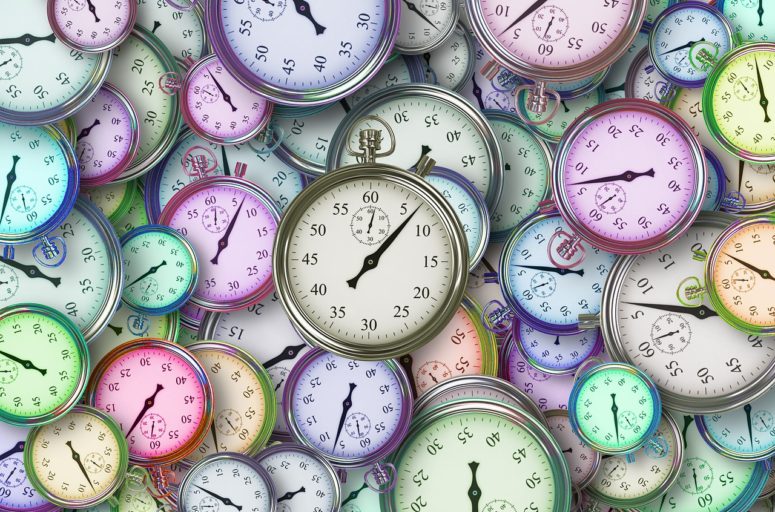Over the last several years, people have asked me with fairly regular frequency, “How do you do it all?”. My reply is usually some version of “I don’t.” There is quite a lot that I either implicitly or explicitly say “no” to, and to be candid, it is something that I consistently try to get better at. In a culture that often measures our lives in terms of how many different things we do, I try to assess my life on whether I am giving my best effort to the few specific roles that God has prepared for me. Instead of chasing after society’s changing expectations of what I should be, I instead evaluate how I invest my time based on one simple criterion: what will I say when I have to stand before God and give account for how I used the minutes, hours, days, and years that He has given me? My time on Earth is finite and has an expiration date, therefore I want to make the most of it while I can.
One of the ways that I try to do that is I try to redeem as much time as possible. In any given season of life, there are pockets of time that can easily be wasted; time that must be spent but can easily be consumed with no specific purpose. When our family schedule changes or when I take on new responsibilities, I try to identify what those periods of time might be. Instead of viewing them as time where I can’t get things done, I instead try to think of how they may be used productively. I try to put parameters in place so that instead of letting time pass me by, I am making the most of it.
To do that well, here are a few key principles I have employed:
- Count the minutes – To be intentional about redeeming time, it is beneficial to know how you are spending it. This is similar to the reason that people use a budget to evaluate and make wise choices about how they spend their money. If you want to make wise investments with your time or your cash, you need to know how you want to use it, as well as where it is currently being spent. This may mean keeping a log for a week of how much time you allocated to various activities – just know that when you are keeping track of time, the mere act of writing down what you are doing is likely to prompt you to make better choices for how you allocate it. However, even if this is the case, you may still be surprised by how many minutes you invest in relatively inconsequential things. I find that at different seasons of life, it is helpful to reassess and make sure that I haven’t gotten off track but am still apportioning my hours in a way that honors God and demonstrates I am prioritizing the things that are most important to Him. Even if you have a fairly good grasp of how major portions of your day are spent, I also find it helpful to keep track of how much time I spend on “little” things that can quickly become time wasters. For example – if I find myself scrolling through recipes online, I note what time I start and how much time I want to spend on that endeavor. Without some way of holding myself accountable, something that I think I am only spending a few minutes doing can quickly end up eating up an entire hour!
- Identify how to make “wait times” productive time – If your schedule is anything like mine, there are pockets throughout the day where it seems I am forced to use my time just waiting for what comes next. This may include the time I spend waiting in the pick-up line at my kids’ school, or the time I spend waiting in the lunch line when I am ordering food at work. Whatever the particulars may be for you, there are probably regularly occurring blocks of time that can either be spent purposefully or consumed thoughtlessly. I try to consider my regular routines and “schedule” things for those blocks. For example – I might schedule listening to an audiobook while waiting for my kids. When I was enrolled in a Greek class, I reviewed my vocab while waiting in lines. The point was to make sure that I am intentional in how I use those “in between moments” to get things done, rather than just carelessly wasting them.
- Fill in the gaps – Although there are regularly occurring pockets of time in my weeks, there are also gaps that pop up that I didn’t plan for. This may be when I am waiting for a pick-up order to be delivered to my car, or when I am waiting for my oven to reach a certain temperature to put in dinner. Along with scheduling things for the pockets I know about, I try to have things I can do to “fill” those even smaller periods of time that I didn’t anticipate. For example, I try to use these windows to review my memory verses on my Bible memory app. Or I may open up one of my church’s prayer lists, and spend those moments petitioning God on behalf of those in our church family who are in need. I also try to keep a book on my Kindle app in progress so I can spend a few minutes reading a paragraph or two. When my kids were younger and I needed to be with them while they played outside (but didn’t necessarily need to watch them every second), I would sit on my porch and write a few sentences for my next blog post. The key is to have some ideas for how you will spend the unexpected gaps determined before the gaps occur. If I already know a few ways to spend those unanticipated “extra” minutes, I am more likely to use them well.
- Put in place routines – One of the most beneficial strategies for ensuring that I spend my time well has been having a few key routines in place at the start and at the end of the day. If I always know that I am going to start my day with prayer and reading through my church’s Bible reading plan, and if I am always going to end the day, reviewing memory verses and going through a book of the Bible that I am studying in-depth, I know that regardless of how the rest of the day went, at least the start and end of the day have been used wisely. I have found that starting and ending the day well and with purposeful intention, helps ensure that I am wiser about how I spend the minutes in between those times too. One of the practices that has helped me write more consistently is that I have committed to write something every day – even if it is just a sentence. Your routines will likely not mirror mine, and that’s o.k. The key is to prayerfully consider what your routines should be, and to be diligent in following them. One word of caution – don’t have so many “routines” that they are impossible to regularly keep. Figure out a few key ones that will help you stay on track with using your time in ways that please God.
- Eliminate time wasters – When I find that there is something that consistently distracts me from using my time well, I eliminate it. This may seem drastic, but I have found that I am able to be more intentional with my time, if I give up completely those things that work against that purpose. This abstention may be for a season, or it may become permanent, depending on my conviction, but I have found that eliminating it for at least a month helps me better evaluate whether it is something I can add back in without it becoming an obstacle to how I redeem time. What is important is not to just give up the time wasters – but to prayerfully and thoughtfully fill the time that you used to spend on those things. For example, as my kids got older, I realized that my kids didn’t depend on me as much for some of their daily activities and I was using those minutes in unfruitful ways. I started taking graduate classes in biblical studies, in part because I knew that if I had the time to spend on unproductive endeavors, I should be able to use that time to write papers and read books. Having the structure of school provided built-in accountability to ensure that I continued to use my time well. You may not need to enroll in a class to establish accountability, but I do encourage you to have some way to compel you to not revert to the previous unfruitful ways of spending your time. Perhaps this means starting a book club with a friend where you meet to discuss the text you have both committed to read. Or maybe you ask your spouse to quiz you each week on the verses you have committed to learn. Whatever it is, when you identify how you are going to fill the time previously occupied by time wasters, have some mechanism for reinforcing your new behavior until it becomes routine.
There are still days where I look back and think “where did the time go?” and I am less-than-pleased with my honest evaluation of how my hours were spent. However, one of the crucial practices to using my time wisely has been to continually evaluate how I spend it and areas where I can get better at using it in a way that honors God. I imagine that as long as I am on this Earth this will continue to be something that with God’s help, I refine and improve upon. My prayer is that perhaps some of these practices that I have employed will be helpful for others who want to redeem the time and make the most of the days that God has given them.


